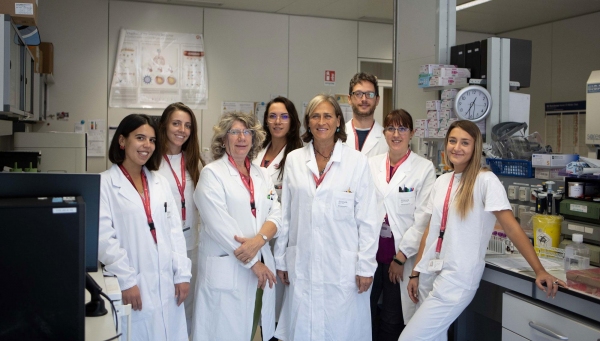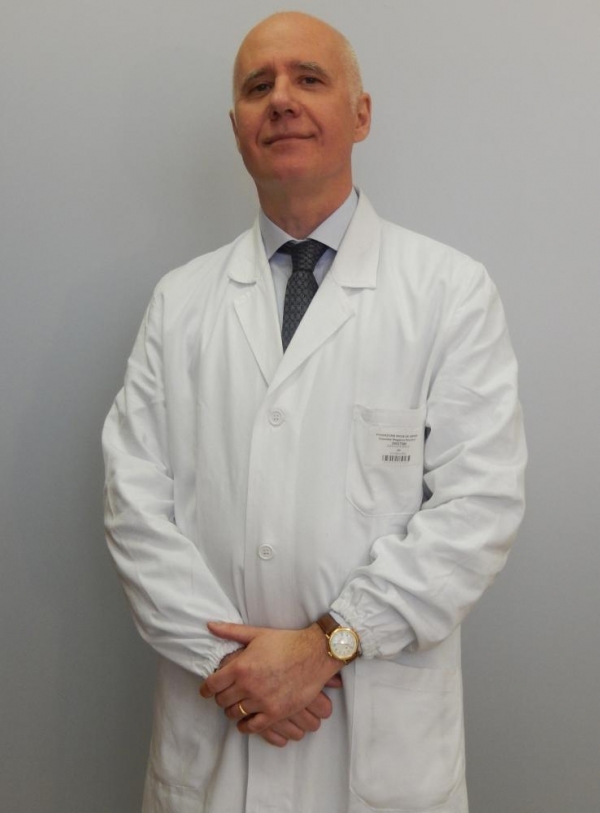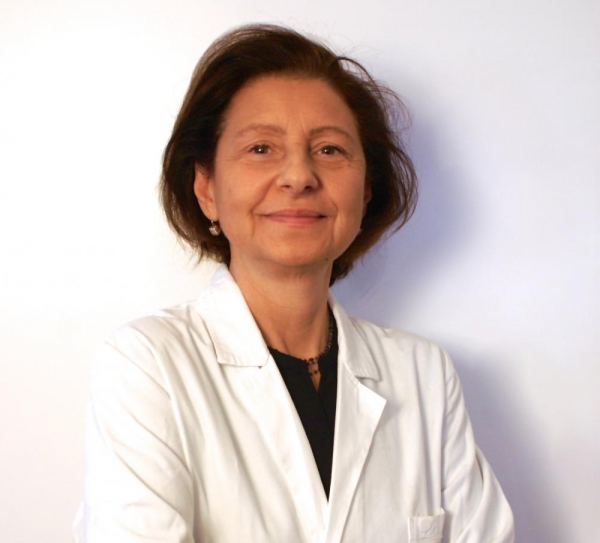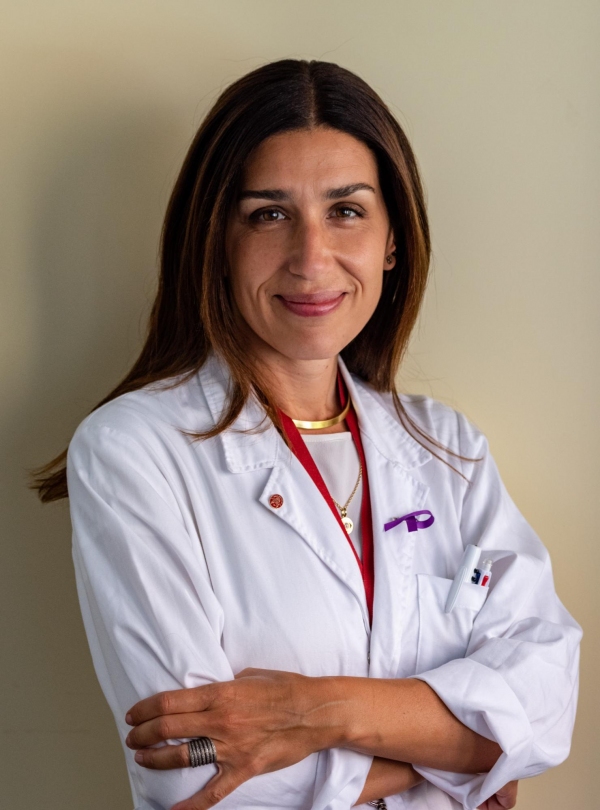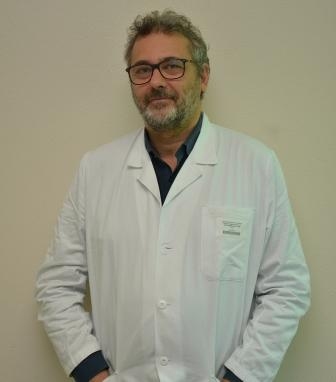New precision medicine approaches in gastroenterology and hepatology /
Gastroenterology and Hepatology
HCV hepatitis:
Research in the area of HCV infection has been a major focus of the SC Gastroenterology and Hepatology's editorial activity in recent years, leading to the publication of numerous journal articles in peer-reviewed indexed journals, including the writing of the most recent international recommendations for the treatment of chronic HCV hepatitis. Focus of research activity is the study of the natural history of post-treatment HCV cirrhosis to assess risk factors associated with residual risk of clinical complications (HCC, ascitic decompensation, digestive hemorrhage). In the past year, the research team has been engaged in the project to evaluate the effectiveness of opportunistic screening for HCV in the 1969-1989 population, sponsored by the Region of Lombardy with scientific coordination of the regional activity. This research team manages a database of about 3000 patients with HCV cured with last generation antiviral drugs (DAAs).
NAFLD:
The research activity is aimed at studying the natural history of metabolic hepatopathy in relation to risk factors for NAFLD and the impact of genetics on the natural history of NAFLD. Hepatic steatosis, whether or not complicated by steatohepatitis (Non-alcoholic steatohepatitis, NASH) is an emerging disease associated with metabolic syndrome. The group actively participates in several GCP phase 2 and 3 clinical trials for the treatment of subjects with NASH. The Research Center appears to be among those with the highest enrollment numbers nationwide. About 70 Patients have been enrolled in spontaneous collaborative studies with other National and International Centers involved in NASH research activities. This research team maintains a database of about 600 patients with nonalcoholic metabolic liver disease.
HBV/HDV hepatitis:
The research group has participated and participates in numerous clinical trials in GCP, evaluating new anti-HBV therapies in phase II (5 anti-HBV protocols during 2021), and is very active in clinical research activity with spontaneous and cooperative national and international studies focusing on new therapeutic approaches, new biomarkers such as HBV RNA (international CirB-RNA project), definition of predictors of hepatocarcinoma, renal (glomerular and tubular) and bone safety in patients treated with NUC. In addition, research in the area of HBV infection has been a major cornerstone of the editorial activity of Gastroenterology and Hepatology in recent years, leading to the publication of numerous articles in high Impact Factor journals, including the writing of the most recent international recommendations for the treatment of chronic HBV hepatitis. Equally important is the research activity devoted to the study of the natural history of chronic HDV hepatitis with the identification of factors (clinical, virological) predictive of disease progression and the evaluation in terms of efficacy, safety and long-term outcomes of HDV chronic hepatitis treatment; identification of factors predictive of response to treatment. This research team maintains a database of about 1,200 patients with HBV and about 250 patients with HDV; these are among the largest case series in Europe.
Cholestatic hepatopathies:
Research work is directed toward the study of the epidemiology and natural history of primary biliary cholangitis. The studies conducted are aimed at evaluating the accuracy of noninvasive tests for staging liver fibrosis in cholestatic diseases and studying the efficacy and safety of second-line therapies in patients with primary biliary cholangitis unresponsive to ursodeoxycholic acid. The research group participates in the Italian Epidemiologic Registry on PBC, with the aim of creating an Italian National Registry to better define the epidemiology and pathogenesis of the disease. It also actively collaborates with Italian (Italian PBC Group) and international (UK PBC Group) research groups in research projects aimed at better understanding the natural history of the disease, defining clinical and biochemical predictors of response to currently available therapies. In late 2021, the accreditation process for the European ERN Rare Liver network was successfully completed. This research team maintains a database of approximately 230 chronic cholestatic liver diseases.
Advanced disease and pre liver transplantation:
Research activity is developed on conducting randomized controlled clinical trials about ACLF (Acute on Chronic Liver Failure), CSPH (Clinically Significan Portal Hypertension). The subject of a spontaneous study is the evaluation of primary hemostasis in patient with cirrhosis and thrombocytopenia (Cir-TAS), and a pilot study evaluating gut microbiota in patients with cirrhosis and clinically significant portal hypertension has been initiated. Another research focus of the laboratory is the study of novel predictors of hepatic decompensation in patients on the transplantation waiting list. Research activity has resulted in publications in peer reviewed indexed journals on cirrhosis and portal hypertension (specifically: natural history cirrhosis post SVR or after virological suppression; survey conducted in Italian Hepatology Centers on the use of blood products and other strategies in anticipation of invasive procedures in cirrhotic patient with plateletopenia and coagulopathy; SARSCoV2 vaccination in cirrhotic patient). This research team maintains a clinical database that includes several hundred patients with advanced liver disease.
Hepatocarcinoma:
Focus of research activity is to study predictors of risk of hepatocarcinoma occurrence in patients with cirrhosis of viral etiology undergoing treatment (HBV and HCV), predictors of risk of post liver transplant recurrence and personalized treatment of recurrence in patients with hepatocarcinoma, and serological and tissue predictors of hepatocarcinoma occurrence and recurrence. Phase 1-3 randomized controlled clinical trials are conducted for the first-line and second-line treatment of patients with hepatocarcinoma on monotherapy or combination therapy, and studies aimed at the personalization of systemic and combination therapy in patients with hepatocarcinoma according to the stage of disease. In the past 5 years (2018-2022), the research activity has led to the publication of 59 full papers and presentation to communication of the results achieved at numerous national and international congresses, as well as participation in the ongoing Italian ITALICA multicenter project and the SIG-HCC AISF multicenter network. This research team maintains a clinical database that includes approximately 800 cases of HCC.
Rare Liver Diseases:
The team is also actively engaged in the management of patients with hepatic vascular diseases.
Autoimmune Hepatitis:
Focus of research activity is the study of the natural history of autoimmune hepatitis with acute/subacute onset, in relation to liver transplantation as rate of retransplantation and role of immunosuppressive therapy. Research also includes the application of liver biopsy in the diagnosis of autoimmune hepatitis and monitoring of therapeutic efficacy using noninvasive methods. The research team is also involved in Multicenter Projects (computational pathology in AIH in collaboration with Anatomia Patologica-Fondazione and Milano Bicocca University) and adheres to the European Rare Disease Registry - ERN.
Post Liver Transplantation:
The post-transplantation research program spans multiple studies aimed at evaluating through diagnostic tools--Fibroscan--the type and degree of graft damage in transplant recipients undergoing liver biopsy in the past 10 years. Recent focus developed by the research group is the study of the impact of anti-SARS-Cov2 vaccination on the humoral and cellular response in solid organ transplantation: comparison of liver and lung transplant recipients as well as the prevalence/outcome analysis of COVID-19 infection in liver transplantation in Omicron-2022 era. A survey on the use of liver biopsy and noninvasive methods in liver transplant centers is also active. Other studies are aimed at the analysis of the outcome of patients transplanted for viral hepatitis B, delta, C with different indication for transplantation (fulminant hepatitis/cirrhosis/HCC) and finally in the management of immunosuppression and non-neoplastic complications in patients with post-transplant hepatocarcinoma recurrence The research activity is finally placed in multicenter studies in transplant centers (Italy AISF-CPT)/Europe EF Clif. This research team maintains a database of more than 800 liver transplant patients.




